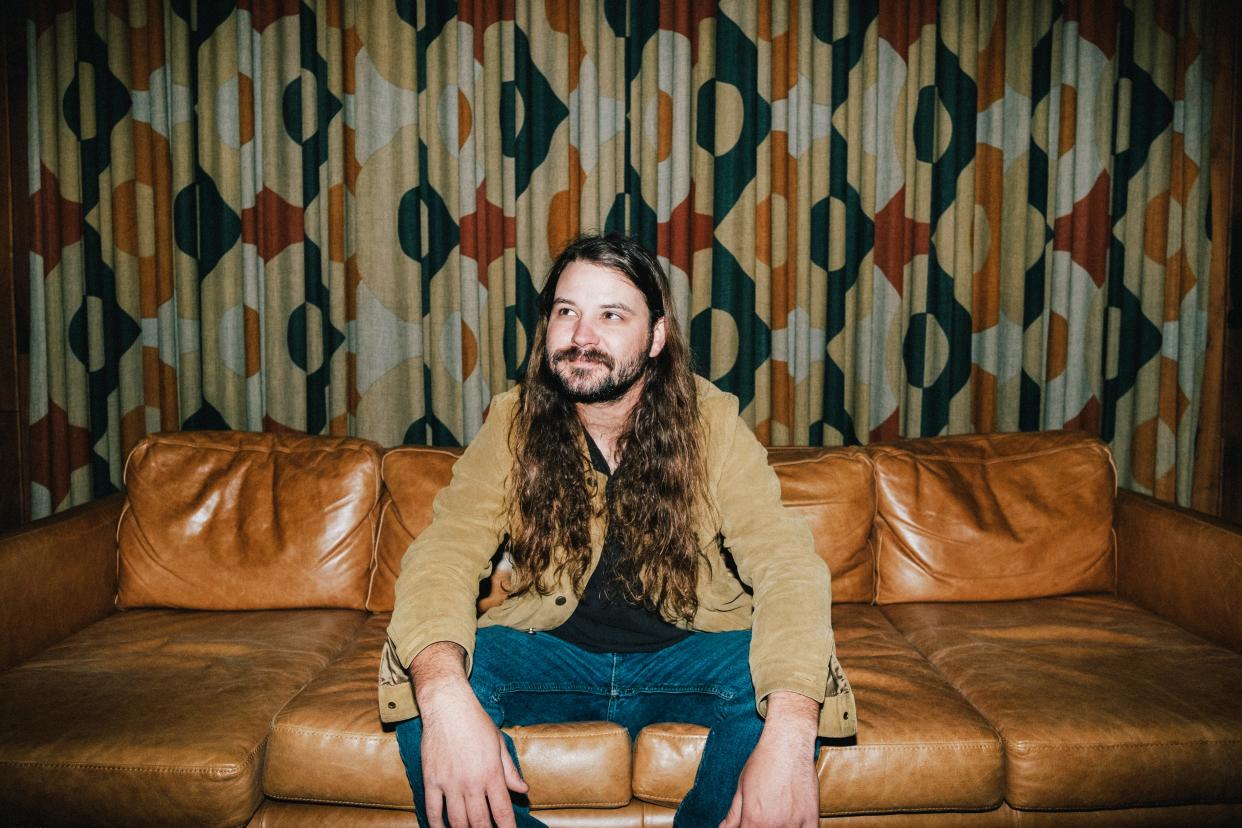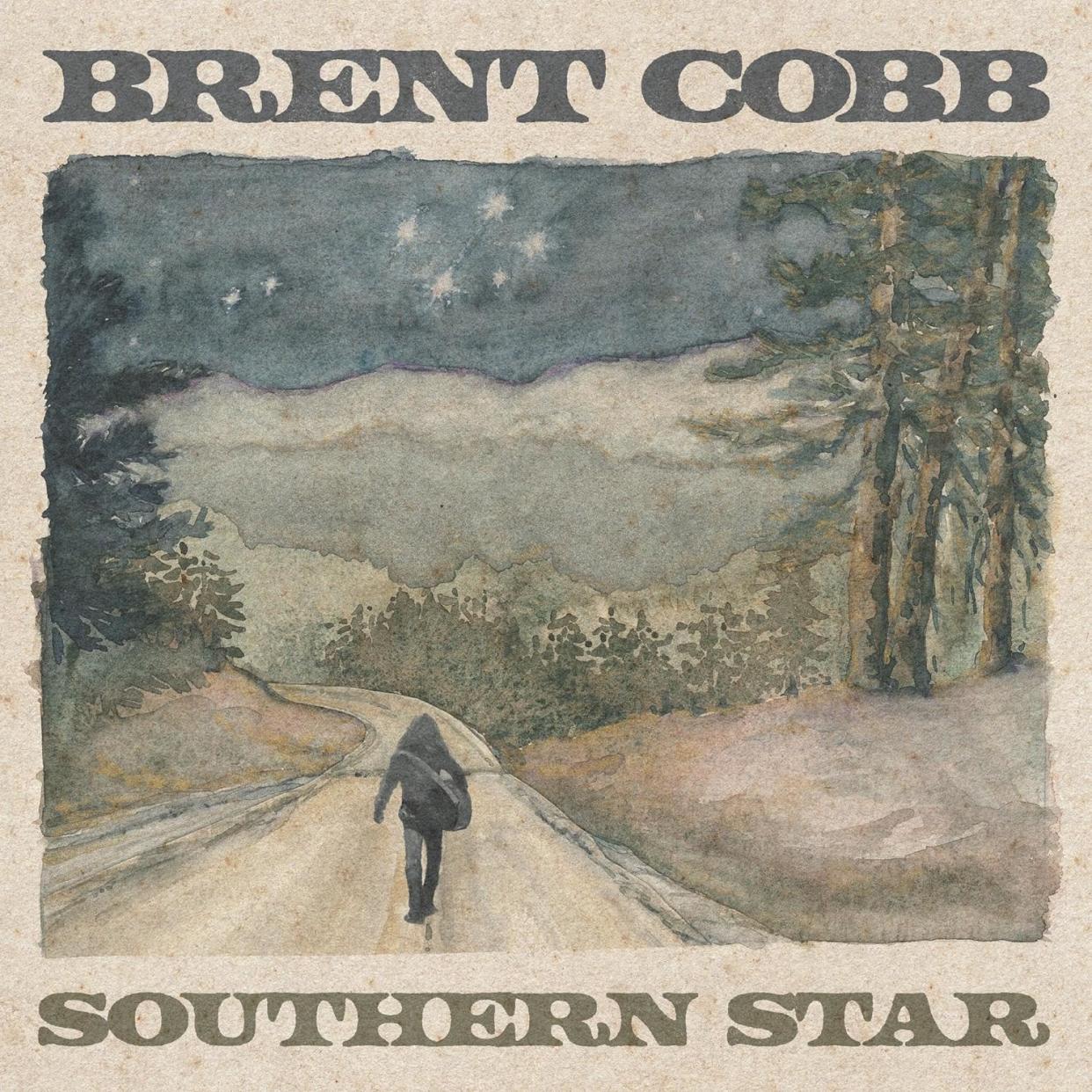'Southern Star' Brent Cobb ready to ride the line of country and soul into The Blue Note

The first sound you hear on Brent Cobb's 2023 album "Southern Star" is an electric piano, warm and resonant, mixing its own palette of colors. And this electric piano speaks to you like some spiritual tour guide, imploring you to look around and absorb your surroundings: this is the heart of the South.
As you reckon with the place you're in, you begin reckoning with all the intersections that lead there. Here, Otis Redding songs pour forth from dusty jukeboxes to echo off the grainy walls of country-western bars; here, the South's past and present inform — but never dictate — its future.
You hear all this, experience all this, feel all this in a second's worth of music — maybe two seconds, if we're generous with the clock. Lining every sound with meaning is deliberate, and also the most natural thing in the world to Cobb.
Throughout "Southern Star," the southwest Georgia native wanted to "ride the line" between soul and country music, he said in a recent interview. Working in the company of a crackerjack band, he tightened and loosened the sound by degrees.
If a song veered too far into soul territory, Cobb welcomed in a whirring harmonica, he said; overcorrect toward country and it was time to turn up the keys.
Columbia listeners can enjoy riding the line with Cobb and Co. when he plays The Blue Note next week.
Settling into the groove
The second sound you hear on "Southern Star," a sound which stretches across 10 songs and about 34 minutes of music, is the sound of contentment. These grooves are easy, the lyrics grounded, the playing rising toward the Georgia heavens like campfire smoke.
"No matter how far I go / No matter how deep the dark / I know I can always count on the southern star," Cobb sings on the opening title track.
His music truly works when he leans back into the laid-back, he testified.
"I always write best when I feel that way," Cobb said. "Even if I’m going through a hard time ... it’s always once you get through whatever it is, be it good or bad, and you’re able to just be content with the moment you are in. The songs just sort of flow out."

Making the record, Cobb and his peers embraced what they had in common, together embodying songs about the people, places and things they know by heart.
Cobb brought a clear-eyed vision for "Southern Star" into the studio. He doesn't speak the language of music theory, he said, but rather draws on a "deep well of influences" and, with those influences, ample references from classic songs and deep cuts.
To coax the sound inside his head out of other players, Cobb might wax rhapsodic about a snare sound or a groove on another recording, he said, then bear witness as his peers translated that element in their own time, with their particular talents.
Alive in an age of new country classics
Among the deepest cuts here: "When Country Came Back to Town." Over a gentle stomp and ambling guitars, Cobb recites a loving litany of present-tense country-music greatness.
The first verse details Cobb's earliest glories, the moments he found his bearings within a musical community:
I was there when Shooter Jennings rewound the sound like a cassetteI watched Jamey Johnson cut “You Can't Cash My Checks”Back then Rowdy Jason Cope was running shine Sunset to VinePickin’ songs with Leroy PowellMakin redneckisms rhyme
From there, Cobb tips his cap toward household names such as Sturgill Simpson, Kacey Musgraves and Chris Stapleton, critical darlings such as River Shook and Hayes Carll and anyone else he can think of, leaving himself a gentle lyrical caveat:
Lord knows it's hard to name them allBut hell right off the top of my head, Isbell, Eady, Patton, Moonpie, Turnpike, Colter, and CrockettAnd won't be stoppin, no name droppin’ til history books echo the soundOf all the folks who saddled up and drove country back to town
"I knew that I would someday write that song," Cobb said, that knowing dating back about two decades.
Every artist named is a friend, he said, but they also make up the "foundation layers of where we are" as a genre. He relishes the idea of writing history as it happens. Iconic country artists of the 1960s and '70s would often reference their peers in song, in real time, and Cobb wanted to follow them in this faithful manner.
He expressed a deep gratitude at being around to hear and know such terrific musicians, to be alive in the time of — fill in the blank with any artist he references.
"I’ve watched this small independent country genre grow legs. I’ve watched it crawl, walk, run," he said.
And no doubt, many who hear "Southern Star" and his other projects are grateful to be alive in the time of Brent Cobb.
Cobb plays The Blue Note at 8 p.m. Wednesday; Zach Russell shares the bill. Tickets are $20-$40. Visit https://thebluenote.com/ for more information.
Aarik Danielsen is the features and culture editor for the Tribune. Contact him at adanielsen@columbiatribune.com or by calling 573-815-1731. He's on Twitter/X @aarikdanielsen.
This article originally appeared on Columbia Daily Tribune: How Brent Cobb creates, records country-music history in real time
